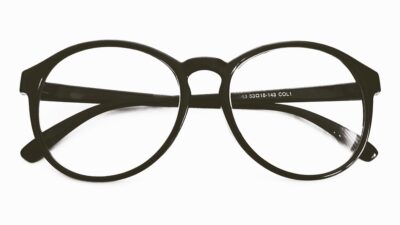Eco-Friendly Laptops: Brands Making a Difference in Sustainability
As concerns about climate change and environmental degradation continue to rise, consumers are increasingly seeking out sustainable technology options. Among these, eco-friendly laptops have emerged as a viable choice for those looking to reduce their carbon footprint while still enjoying cutting-edge performance. Several brands have taken significant strides toward sustainability, focusing on eco-friendly materials, energy-efficient designs, and ethical manufacturing processes. This article highlights some key players in the eco-friendly laptop market.
Why Eco-Friendly Laptops Matter
Electronics manufacturing has a substantial environmental impact, from resource extraction to production and disposal. Laptops often contain hazardous materials and contribute to e-waste, which poses serious challenges in recycling and environmental safety. Eco-friendly laptops aim to mitigate these issues by using sustainable materials, improving energy efficiency, and encouraging recycling programs.
Leading Eco-Friendly Laptop Brands
1. Apple
Apple has made considerable strides in sustainability, boasting a commitment to become 100% carbon neutral across its entire supply chain by 2030. The MacBook lineup, including the MacBook Air and MacBook Pro, utilizes recycled aluminum and sustainable materials in their design. Additionally, Apple’s focus on energy efficiency means that its laptops consume less power, contributing to lower greenhouse gas emissions over their lifecycle.
2. Dell
Dell’s commitment to sustainability is evident through its "Progress Made Real" initiative, which aims to deliver more sustainable products. The Dell Latitude series incorporates recycled materials in their chassis and packaging. Dell also has a robust take-back program that allows customers to recycle old laptops safely. Their Energy Star certifications further ensure energy efficiency, making Dell a strong contender in the eco-friendly laptop market.
3. HP
HP is a pioneer in eco-friendly technology, with its "Planet Partners" program, enabling customers to return products for recycling. HP’s ENVY and Spectre laptop lines include models made from recycled plastics and aluminum. The company aims for its entire product portfolio to be made from recycled or renewable materials by 2030. Additionally, HP focuses on reducing energy use in its manufacturing processes, contributing to a lesser environmental impact.
4. Lenovo
Lenovo is embracing sustainability through its "Smart Innovation" strategy, which includes reducing greenhouse gas emissions and enhancing its energy efficiency. The ThinkPad series features models made with recycled materials, and Lenovo has committed to producing more laptops with a circular economy approach in mind. Their ThinkPad X1 Carbon, for instance, is designed for easier disassembly, promoting recycling and reusability.
5. Microsoft
Microsoft’s Surface line of laptops and devices emphasizes eco-friendly design and materials. The company has pledged to be carbon negative by 2030. Many Surface devices incorporate sustainable materials, such as recycled aluminum. Furthermore, Microsoft works to minimize energy consumption across its devices, aligning with its overall sustainability goals, which include responsible sourcing of materials.
6. Acer
Acer’s "Earthion" initiative focuses on integrating sustainability into its product design and production processes. The Swift series laptops utilize recycled plastics in their construction. Acer is also committed to reducing its carbon footprint by improving energy efficiency across its products and factories, actively participating in projects aimed at reforesting and promoting sustainability.
Key Features of Eco-Friendly Laptops
-
Sustainable Materials: The use of recycled plastics, metals, and bioplastics helps minimize the environmental footprint of manufacturing processes.
-
Energy Efficiency: Energy Star certifications and low power consumption in eco-friendly laptops reduce electricity usage and associated emissions.
-
Recycling Programs: Brands often provide take-back programs for old devices, encouraging customers to recycle instead of disposing of laptops in landfills.
- Modular Designs: Laptops designed for easy upgrades and repairs reduce the need for complete replacements, extending the lifecycle of the device.
Conclusion
As the demand for sustainable technology continues to grow, eco-friendly laptops are paving the way for a greener future in computing. With brands like Apple, Dell, HP, Lenovo, Microsoft, and Acer leading the charge, consumers now have a wealth of options that combine performance with planet-friendly practices. By choosing eco-friendly laptops, individuals are not only making a smart technological choice but also contributing to a more sustainable world. As technology evolves, the hope is that more brands will follow suit, making sustainability a core aspect of their product offerings.



